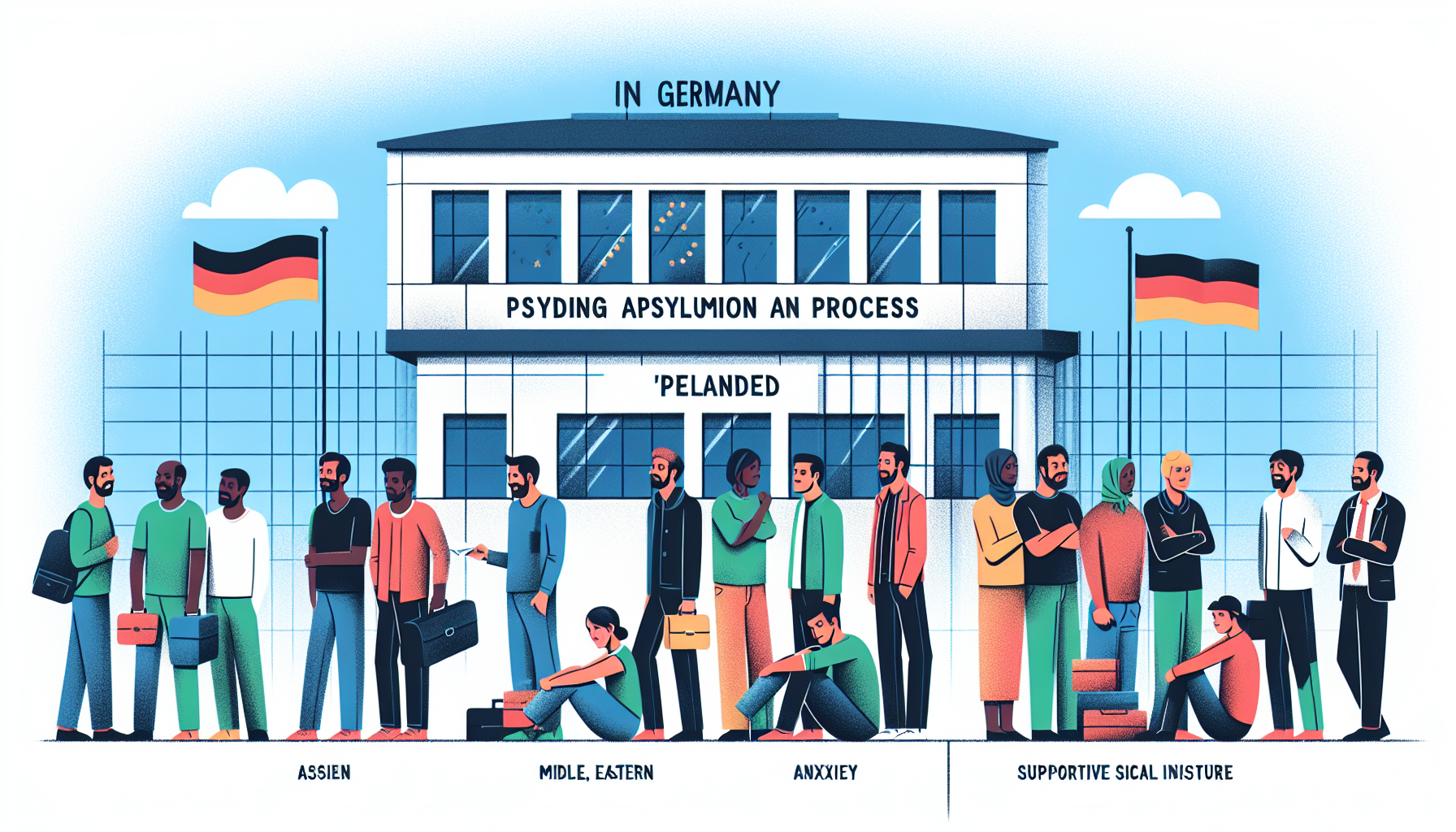Understanding the Delays in Germany's Asylum Procedures in 2024
In 2024, Germany is facing significant delays in its asylum procedures, with applicants waiting an average of over eight months for a decision. This marks the longest processing time since 2017, raising concerns among policymakers, human rights organizations, and the public. The German government attributes these delays to increased workloads and a surge in asylum applications. This article delves into the causes, implications, and potential solutions to this pressing issue.
Why Are Asylum Procedures Taking Longer?
The primary reason for the extended processing times is the sharp rise in asylum applications. In recent years, Germany has seen a steady influx of migrants seeking refuge from conflict, persecution, and economic instability in their home countries. This has placed immense pressure on the Federal Office for Migration and Refugees (BAMF), the agency responsible for processing asylum claims.

Additionally, the complexity of individual cases has increased. Many applicants come from regions with intricate political and social dynamics, making it challenging to verify their claims quickly. The BAMF must conduct thorough background checks, interviews, and document verifications, all of which contribute to the delays.
Increased Workload and Resource Constraints
The BAMF has struggled to keep up with the growing number of applications due to limited resources. Despite hiring additional staff, the agency remains understaffed relative to the volume of cases. This has led to a backlog that continues to grow, further exacerbating the delays.
Moreover, the COVID-19 pandemic has had a lasting impact on the efficiency of asylum procedures. Lockdowns, social distancing measures, and remote work arrangements have slowed down processing times, as many steps in the asylum process require in-person interactions.
The Impact of Delayed Asylum Decisions
Prolonged waiting times have significant consequences for both asylum seekers and German society. For applicants, the uncertainty and lack of resolution can lead to mental health issues, including anxiety and depression. Many are unable to work or access education while their applications are pending, leaving them in a state of limbo.

For Germany, the delays strain social services and integration efforts. Asylum seekers often rely on state support for housing, healthcare, and basic necessities, which places a financial burden on local governments. Furthermore, delayed integration hinders the long-term prospects of successful integration, as applicants miss out on opportunities to learn the language, acquire job skills, and contribute to the economy.
Challenges for Local Communities
Local communities bear the brunt of these delays, as they are responsible for accommodating asylum seekers during the waiting period. Overcrowded shelters, strained resources, and tensions between residents and newcomers are common challenges. These issues highlight the need for a more efficient and sustainable asylum system.
Potential Solutions to Streamline Asylum Procedures
Addressing the delays in asylum procedures requires a multi-faceted approach. Here are some potential solutions:
- Increase Funding and Staff: The BAMF needs additional funding to hire and train more staff, enabling it to process applications more efficiently.
- Leverage Technology: Digital tools and automation can streamline document verification, background checks, and other administrative tasks.
- Enhance International Cooperation: Collaborating with other countries and international organizations can help verify claims more quickly and reduce duplication of efforts.
- Improve Integration Programs: Early access to language courses, job training, and cultural orientation can help asylum seekers integrate more effectively, regardless of the outcome of their applications.
The Role of Policy Reforms
Policy reforms are essential to address the root causes of the delays. Simplifying the asylum process, setting clear timelines for decision-making, and prioritizing cases based on urgency are some measures that could make a difference. Additionally, Germany could explore alternative pathways for migration, such as labor migration programs, to reduce the pressure on the asylum system.
Looking Ahead: A Call for Action
The delays in Germany's asylum procedures are a complex issue that requires immediate attention. While the government has taken steps to address the problem, more needs to be done to ensure a fair and efficient system. By investing in resources, embracing technology, and implementing policy reforms, Germany can uphold its commitment to human rights while managing migration effectively.
As the global migration crisis continues, Germany's experience serves as a reminder of the importance of balancing compassion with practicality. A well-functioning asylum system not only benefits applicants but also strengthens the social and economic fabric of the host country.
